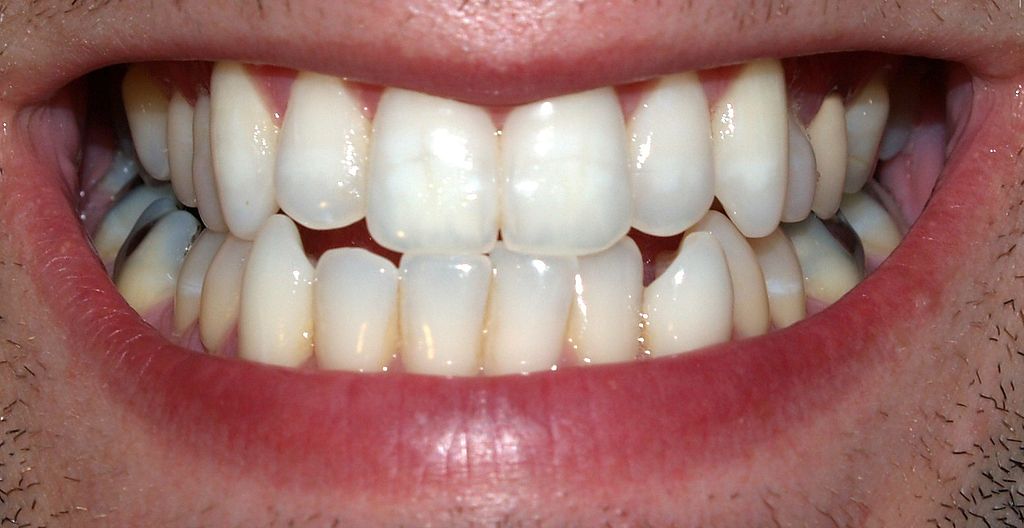Results for: mehmet oz

(Dys-)Functional Medicine Comes to Dentistry
The great philosopher Deepak Chopra wrote: “I do not believe in meaningless coincidences. I believe every coincidence is a message, a clue about a particular facet of our lives that requires our attention.” So when SBM author extraordinaire Jann Bellamy emailed me last week with an article about so-called “Functional Dentistry” with the comment “Blog fodder?”, I looked it over with interest...

Let food be thy medicine and medicine be thy food? The obsessive worship of “medicinal foods”
Let food be thy medicine and medicine be thy food. – attributed to Hippocrates Who said anything about medicine? Let’s eat! – attributed to one of Hippocrates forgotten (and skeptical) students Who hasn’t seen or heard Hippocrates’ famous quote about letting food be your medicine and your medicine your food? If you have Facebook friends who are the least bit into...
“America’s Quack” strikes back
Those of you who read my not-so-super-secret other blog (or who follow the news) familiar with this, but I feel that what happened over the last couple of weeks with respect to a man to whom I like to refer as “America’s Quack” is worth posting right here, in modified form. Last week, a group of ten doctors led by Dr. Henry...

Is cancer due mostly to “bad luck”?
One of the more difficult conversations to have with a patient as a cancer doctor occurs when a patient, recently informed of her diagnosis of, for example, breast cancer, asks me, “Why did I get this? What caused it?” What almost inevitably follows is an uncomfortable conversation in which explanations of the multiple known causes of breast cancer do not satisfy the...
Blaming breast cancer on autism
Gayle DeLong has been diagnosed with what she refers to as “autism-induced breast cancer”. She’s even given it an abbreviation, AIBC. Unfortunately, as you might be able to tell by the name she’s given her breast cancer, she is also showing signs of falling into the same errors in thinking with respect to her breast cancer as she clearly has with respect...
Lessons from the dubious rise and inevitable fall of green coffee beans
News this week that a randomized controlled trial of green coffee bean (GCB) has been officially retracted from the medical literature signals what is hopefully the end to one of the most questionable diet products to appear on the market in years. Plucked from obscurity and then subjected to bogus research, it’s now clear that the only people that actually benefited from...
Did Facebook and PNAS violate human research protections in an unethical experiment?
Ed. Note: NOTE ADDENDUM I daresay that I’m like a lot of you in that I spend a fair bit of time on Facebook. This blog has a Facebook page (which, by the way, you should head on over and Like immediately). I have a Facebook page, several of our bloggers, such as Harriet Hall, Steve Novella, Mark Crislip, Scott Gavura, Paul...
Announcing the Society for Science-Based Medicine
We are proud to announce a new organization: The Society for Science-Based Medicine. A Society for a community of like-minded individuals, both in and out of health care, who support the goals of Science-Based Medicine. People should not suffer, die, go bankrupt, and lose time and hope because of complementary and alternative pseudo-medicine.
The facts of the alternative medicine industry
People have been living on earth for about 250,000 years. For the past 5,000 healers have been trying to heal the sick. For all but the past 200, they haven’t been very good at it. – Dr. Paul Offit Twenty years is a long time in medicine. I celebrated my 20th pharmacy class reunion last weekend. Of course reunions are time to...
Dummy Medicine, Dummy Doctors, and a Dummy Degree, Part 2.2: Harvard Medical School and the Curious Case of Ted Kaptchuk, OMD (cont. again)
“Strong Medicine”: Ted Kaptchuk and the Powerful Placebo At the beginning of the first edition of The Web that has no Weaver, published in 1983, author Ted Kaptchuk portended his eventual academic interest in the placebo: A story is told in China about a peasant who had worked as a maintenance man in a newly established Western missionary hospital. When he retired...

